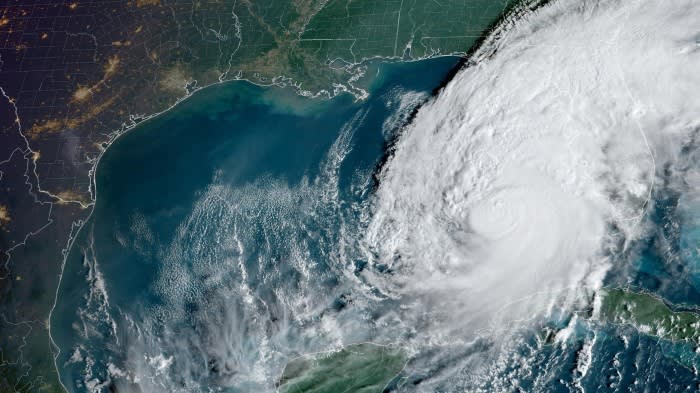Unlock the Editor’s Digest for free
Roula Khalaf, Editor of the FT, selects her favourite stories in this weekly newsletter.
Hurricane Milton could trigger insurance losses of up to $60bn if it stays on its current path, with analysts warning the US’s 2024 hurricane season will “dent” insurers’ profitability.
The National Hurricane Center forecasts that the storm, which is heading towards Florida, will make landfall about 40 miles south of the city of Tampa as “an extremely dangerous major hurricane” on Wednesday night. It is currently a category 4 storm, with winds of up to 155 miles per hour.
Credit rating agency Morningstar DBRS estimates that a change of course leading to a direct hit on Tampa could trigger losses of up to $100bn, which would be on a par with those of Hurricane Katrina, and would make it one of the costliest natural disasters in US history.
Milton is the second major hurricane to hit the US in a fortnight. It comes after Hurricane Helene wreaked havoc across several south-eastern states, killing more than 225 people and destroying roads across western North Carolina.
Morningstar warned that accumulation of losses over the 2024 hurricane season, which runs until the end of November, would “likely make a dent in insurers’ profitability”, particularly for those with “significant exposures to personal lines in Florida”.
On Wednesday, the Securities and Exchange Commission, the US financial regulator, said it was “closely monitoring” the impact of Hurricane Milton on investors and capital markets, and would consider offering relief from filing deadlines for those affected by the storm.
Florida governor Ron DeSantis said 6,000 members of the Florida National Guard and 3,000 from other states were standing ready to respond to the aftermath of the hurricane.


“This is the largest Florida National Guard search and rescue mobilisation in the entire history of the state of Florida,” he told reporters on Wednesday.
DeSantis also tried to reassure Florida residents about the availability of fuel, following reports that some petrol stations had run dry because of panic buying. Highway patrol cars were escorting tankers through traffic to replenish supplies at petrol stations, he said.
In the Tampa Bay area, officials were sending text messages and calling people to warn them of the dangers of failing to evacuate their homes. In Pinellas County, which sits on the peninsula that forms Tampa Bay, officials warned people to “get out now”.
Emergency management director Cathie Perkins said 13 public shelters were open for people with no other options to escape the hurricane, and warned bridges across to Tampa would soon close. “Everybody in Tampa Bay should assume we are going to be ground zero,” she said.
Meanwhile, an independent group of climate scientists said human-caused climate change had boosted Hurricane Helene’s devastating rainfall by about 10 per cent and intensified its winds by about 11 per cent.
Global warming from the burning of fossil fuels had made the high sea temperatures that fuelled the storm 200 to 500 times more likely, the World Weather Attribution group found in a new report.
Climate Capital

Where climate change meets business, markets and politics. Explore the FT’s coverage here.
Are you curious about the FT’s environmental sustainability commitments? Find out more about our science-based targets here


